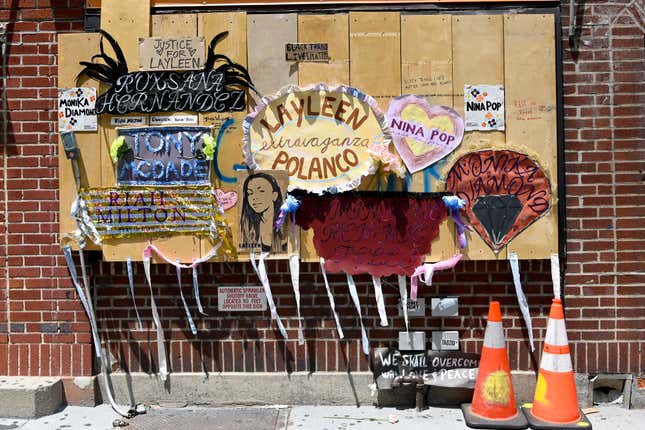
The family of Layleen Polanco, a trans-Afro-Latina who died while in solitary confinement at Rikers Island jail last year, will receive a historic $5.9 million settlement—the largest New York City has ever paid out for a death in one of its city jails.
In a statement to The City, family attorney David Shanies said the settlement will allow Polanco’s family to move on “without enduring years of protracted litigation and reliving their trauma.”
“This being the largest settlement in the city’s history for a death in jail should serve as a powerful statement that trans lives matter.”
Polanco was just 27 when she died from a seizure while on her ninth day of solitary confinement in the infamous jail. She was being held on $500 bail for misdemeanor sex work and drug possession charges.
Melania Brown, Polanco’s sister, told The City the settlement was “just the beginning of justice” for her sister, and that the family still wanted the correction officers responsible for caring for Polanco to be fired.
“Justice would be holding those people who had something to do with my sister’s death accountable for their actions,” said Brown.
In June, after a scathing report released by the city jails’ oversight board detailed the systemic failures that led to Polanco’s death, New York City Mayor Bill de Blasio vowed to end the practice of solitary confinement “once and for all.”
Polanco had a documented history of seizures and schizophrenia and had recently been hospitalized to receive psychiatric treatment before being placed in solitary confinement at Rikers last summer. According to the report from the oversight board, Polanco was placed in punitive segregation because the Department of Corrections did not want to place her in general population housing areas with cisgender women. Before her hospitalization, Polanco was kept with other trans inmates.
The report found that while Polanco was in solitary confinement, corrections officers did not follow jail guidelines which require staffers to check inmates every 15 minutes. On her ninth day of being isolated, corrections officers noticed she was unresponsive but did not physically check on Polanco until an hour and a half afterward. When they finally entered her cell, Polanco was dead.
In a statement shared with The City on Sunday night, the city Law Department called Polanco’s death “an absolute tragedy.”
“The city will continue to do everything it can to make reforms towards a correction system that is fundamentally safer, fairer and more humane.”

